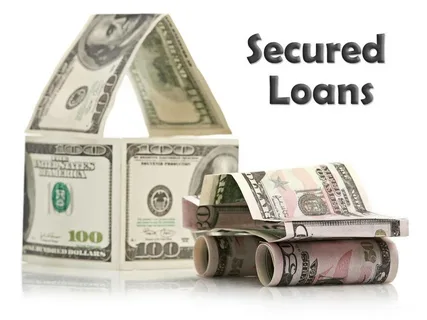A secured loan is a great tool to finance large purchases or consolidate debt. They are usually backed by an asset such as your home or car and can offer lower interest rates than unsecured loans. However, before you apply for a secured loan it’s important to understand the basics to make sure it’s the right financial decision for you.
In this article, we will cover what a secured loan is, how they work, and some of the pros and cons of taking out one. By understanding these key points, you can make an informed choice about whether a secured loan fits into your financial plan.
What is a Secured Loan
A secured loan is backed by an asset, such as a car or home. It implies that if the borrower fails to repay the loan, the lender may seize the asset to recoup their losses. Because lenders accept less risk, this sort of loan often offers lower interest rates and better conditions than unsecured loans. When considering a secured loan, borrowers should make sure they have enough equity in their assets to cover the amount they plan to borrow. For example, a homeowner may need at least 20% equity in their home before they can qualify for a secured loan.
How Secured Loans Work
The process of taking out a secured loan is similar to any other type of loan. Once you’ve determined which asset you want to use as collateral, you will need to fill out a loan application and provide the lender with documentation such as proof of income and assets. The lender will then evaluate the borrower’s creditworthiness before deciding if they can approve them for the loan. If approved, the borrower will receive their funds and be required to make regular payments until the entire balance is paid off.
Pros and Cons of Taking Out a Secured Loan
Secured loans offer several benefits, such as lower interest rates, larger loan amounts, and longer repayment terms than unsecured loans. They also can be used to pay for large purchases or consolidate existing debt.
On the other hand, taking out a secured loan is a big decision that should not be taken lightly. If you fail to make payments on time, your collateral may be repossessed by the lender, which means you could lose an important asset and damage your credit score in the process. Therefore, it’s important to weigh the pros and cons carefully before making any decisions.
Factors to Consider When Applying for a Secured Loan
First, you should make sure you have enough equity in the asset you plan to use as collateral. If you don’t have enough equity in the asset, the lender may not approve your loan application. It’s also important to look at the terms and conditions of the loan carefully before signing any paperwork. Ensure you understand how much interest you will be paying and how long it will take you to repay the loan.
Additionally, consider whether or not a secured loan is really necessary for your situation and if there are other options available that may better serve your needs.
Lastly, keep an eye on your credit score, as taking out a secured loan can affect it negatively if payments are missed or late.
Common Mistakes to Avoid with Secured Loans
When taking out a secured loan, it’s important to avoid making some common mistakes. First, don’t take on more debt than you can comfortably afford to repay. Secondly, make sure to read the terms and conditions of the loan carefully before signing any paperwork. Additionally, make sure you are aware of any penalties or fees associated with defaulting on your loan, and be sure to ask questions if anything is unclear. Finally, be mindful of your credit score and check it regularly – missed or late payments could hurt your credit score.





